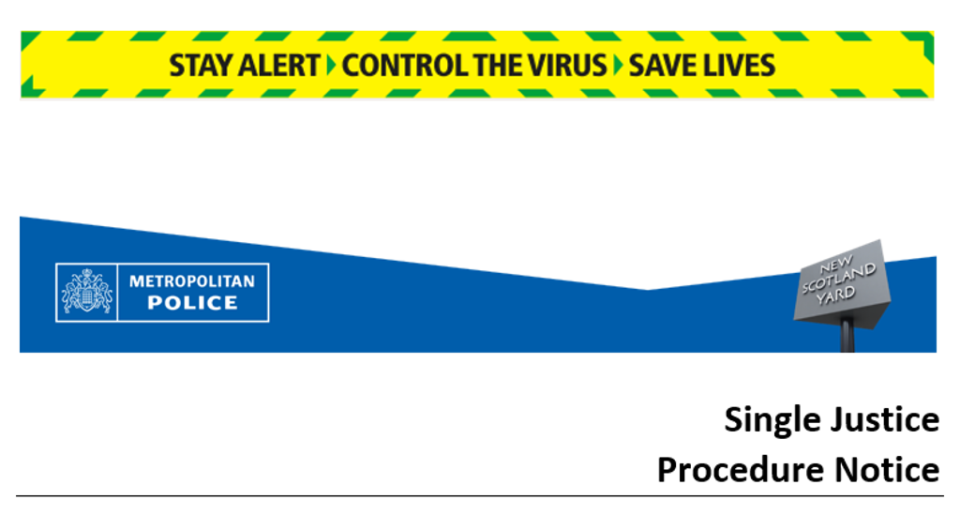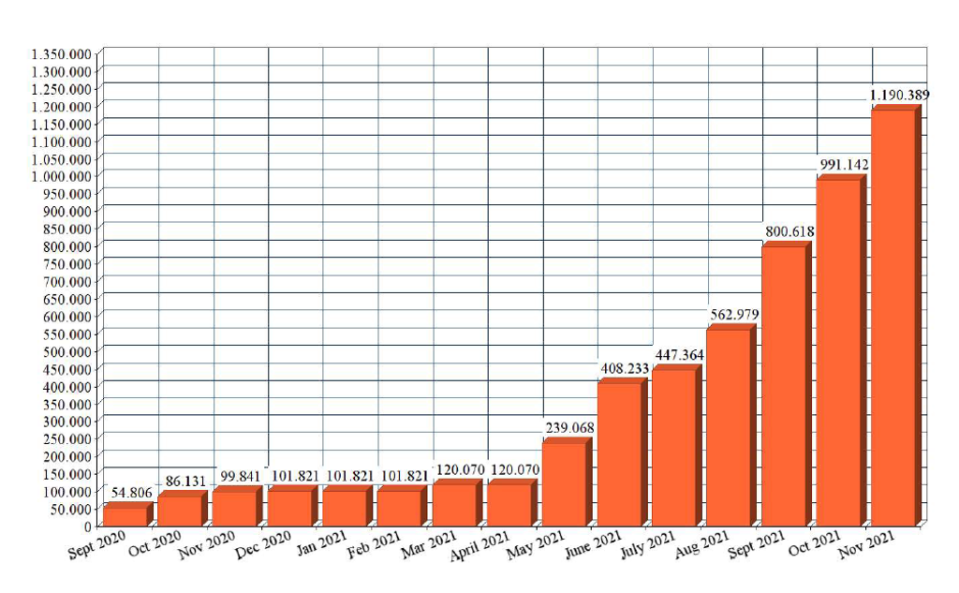London’s Covid-19 rule breakers fined over £1m in closed-door courts

More than £1 million in fines have been handed out to London’s Covid-19 rule breakers by magistrates dealing with cases behind-closed-doors, the Evening Standard has found.
Almost 2,000 people have been prosecuted at Westminster magistrates court for allegations of ignoring the pandemic lockdowns, throwing and attending parties, and breaking quarantine.
The vast majority of coronavirus prosecutions in the capital have been dealt with by the court’s Single Justice Procedure (SJP), which allows magistrates to convict and sentence defendants in private hearings with fines of up to £13,000 handed out.
Analysis of the prosecutions by the Standard reveals a total of £1,190,389 in fines have now been dished out in London for Covid-19 breaches, with defendants also ordered to pay more than £250,000 in legal costs and fees.
The news comes as Prime Minister Boris Johnson and Downing Street are under fire for allegedly holding secret gatherings in the run-up to last Christmas, when the country was facing restrictions and lockdowns.
SJP defendants are written to by police forces, alerting them to the criminal charge, witness statements from officers, and the possibility of a fine.
Despite warnings of the consequences they may face, three quarters of people charged with a Covid-19 offence in London failed to enter a plea, the figures show.
Prosecutions under laws rapidly introduced during the pandemic have been dogged by concerns of defendants being wrongly charged, complex new regulations being misunderstood, and people being unaware that they are being prosecuted.
A 21-year-old Kingston man was fined £12,000 by a magistrate for allegedly breaking lockdown last December, despite being told “case closed” by police when he had earlier challenged the fine.
Hundreds of convictions in the early stages of the pandemic, which were conducted in open court, had to be overturned following a Crown Prosecution Service review, when it emerged police forces had been misusing the 2020 Coronavirus Act. However the CPS review did not extend to SJP cases.
Last October, the Standard revealed how lockdown prosecutions were effectively being conducted in secret, as the courts had failed to tell the public or media about dozens of behind-closed-doors hearings.
New analysis of Covid-19 cases has also revealed a growing trend of magistrates dismissing prosecutions brought by the Metropolitan Police, due to missing evidence and “incomprehensible” and “defective” charges.

Between September 2020 and June this year, just four prosecutions were dismissed at court, while almost 200 cases have been thrown out in the last five months.
Magistrates appear to have disagreed over whether a car counted as an “indoor space” under regulations imposed last year, while dozens of prosecutions have been dismissed in the last couple of months as being “out of time”.

HM Courts and Tribunal Service (HMCTS) has defended the operation of SJP, pointing out defendants can always opt for an open court hearing and those who believe they have been wrongly convicted in their absence can apply to reopen a case.
The courts also have the power to revoke a conviction and sentence if an error is spotted.
Magistrates in the SJP system are assisted by a legal advisor, and journalists can apply to see copies of documents which are put before the court.

“Checks and balances are in place to make sure SJP is fair and transparent”, a recent HMCTS blog stated.
“As a modification of procedures that have in place for many years, sometimes centuries, SJP allows defendants, prosecutors and courts to reach a resolution to minor offences without having to attend court (unless they choose to do so).
“It saves time, resource and inconvenience for all involved, while also delivering justice.”
Read More
Talking Point: Did you notice workers enforcing mask-wearing today?
Greece makes Covid vaccinations mandatory for over-60s
Enforcement stepped up on London transport as mask rules reintroduced

 Yahoo Finance
Yahoo Finance 